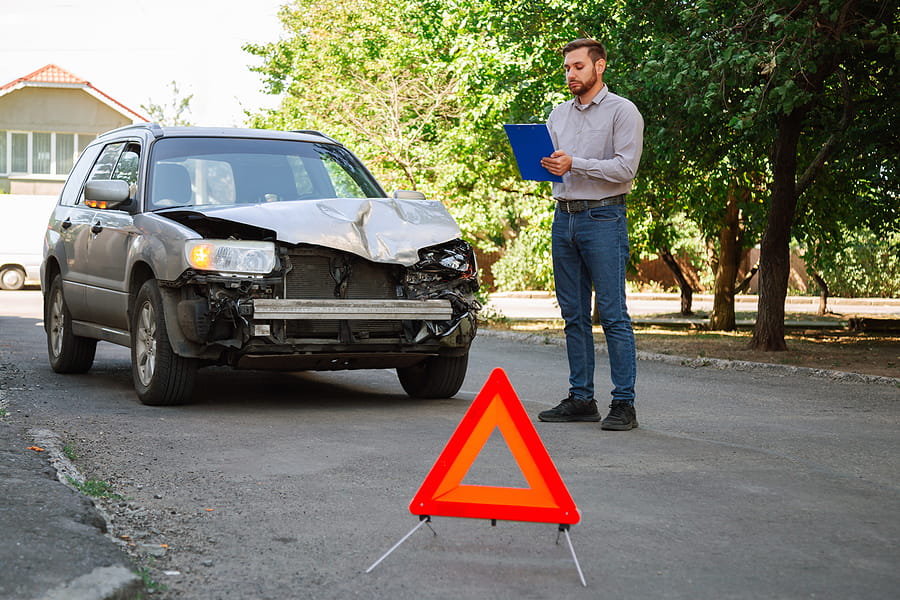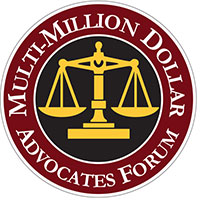Too many drivers fail to carry insurance on their vehicles or fail to carry adequate insurance to cover the needs of a victim after a collision. Drivers may choose not to obtain auto insurance because it may feel too expensive, they may have trouble getting approved, or they may simply “forget” or put it off. Then when a collision occurs, the driver realizes the danger of failing to carry adequate insurance to cover damages and injuries.
As the victim, you may wonder, is it worth suing an uninsured driver in this situation?

The Challenge of Suing an Uninsured Driver
Suing an uninsured driver comes with one important challenge: The uninsured driver failed to carry insurance for financial reasons, which means that they may lack assets to pay for your injuries.
In fact, in many cases, it may not prove worth it at all to sue an uninsured driver because you may end up spending more pursuing the compensation you deserve for your injuries than you can realistically claim from that driver.
Whether it’s worth suing an uninsured driver depends on the specific driver and their assets.
Seeking Compensation After an Accident with an Uninsured Driver
After an accident with an uninsured driver, you have two options to pursue compensation. First, you can sue the driver directly, resulting in considerable struggle and risking recovering the compensation you deserve.
Second, you may have the right to turn to your insurance for compensation for the injuries and property damage you sustained in an accident. For most drivers, using their insurance policy offers the best chance at recovering reasonable compensation.
The insurance company may then try to pursue compensation from the at-fault driver directly. This arrangement alleviates your difficulty recovering compensation for your injuries and places the burden on your insurance company.
MedPay Insurance
If you carry MedPay insurance, it can serve as vital financial protection when you suffer injuries in an auto accident, regardless of who was at fault.
California law does not require MedPay coverage or mandate minimum MedPay coverage you must meet to legally operate a vehicle in California. California insurance providers, however, typically do provide MedPay coverage alongside their auto insurance offerings. MedPay offers immediate coverage for the cost of medical expenses associated with a car accident.
Car accident injuries can prove catastrophic. If you have a spinal cord injury, for example, you could end up spending hundreds of thousands of dollars for medical treatment in the first year after the accident alone. Even the cost of a broken bone, including a broken arm or leg, can end up setting you back thousands of dollars if you do not carry medical insurance.
MedPay insurance can compensate for those injuries, making it easier for you to pay for medical care and move forward with your recovery.
If you suffer injuries in an accident with an uninsured motorist, MedPay coverage can help manage the cost of your early medical bills for any injuries sustained.
Uninsured Motorist Coverage
Like MedPay coverage, California law does not mandate uninsured motorist coverage as part of your insurance policy. However, it costs relatively little to add uninsured motorist coverage to most California insurance policies and adds much-needed protection.
Around 16.6 percent of California drivers do not carry auto insurance. California has the tenth highest rate of uninsured motorists across the United States. Many drivers, therefore, find carrying uninsured motorist insurance an essential part of ensuring they have the funds necessary to help cover the cost of an accident.
Uninsured motorist coverage assists when the driver that causes an accident does not have the insurance coverage necessary to cover the financial losses you may face. In essence, an uninsured motorist claim works the same way as a claim against the other driver’s insurance. Your insurance company may compensate for damage to your vehicle and compensation for your injuries after an accident. Your uninsured motorist coverage can help bridge the gap if any expenses are left.
What Should I Do After an Accident with an Uninsured Motorist?
Treat an accident with an uninsured motorist much the same way you would with a motorist who carries insurance.
Report the accident to the police.
An uninsured motorist may not want to report the accident to the police. In many cases, uninsured drivers can face legal penalties for failing to carry adequate insurance, including fines. The court may also choose to impound the defendant’s vehicle in some cases. Fines increase in severity with multiple convictions, which may leave the uninsured driver increasingly fearful or resistant to reporting an accident.
The uninsured driver may even insist that he will personally take care of the damages you sustained in the accident rather than report the issue to the police.
However, if you do not report the accident to the police, it may be more difficult to pursue the compensation you deserve. Uninsured drivers may not have the funds necessary to help cover your expenses or might not intend to help you at all. Reporting the accident is the only way to ensure justice for losses sustained in that accident.
Seek medical care for any injuries you suffered in the accident.
If you have obvious injuries, seek medical care immediately. Even if you do not have apparent injuries from the accident, you may still want to have a doctor evaluate your physical condition within 24 hours of the accident. A serious car accident can mean immense injuries, and failing to seek medical care could result in you inadvertently making those injuries worse. A doctor can help diagnose and provide treatment recommendations for any injuries you might have. Further, a doctor will document your condition, which acts as evidence for calculating your losses.
Talk to a lawyer about your rights after a collision with an uninsured driver.
A lawyer can help you learn more about your rights, including how you can pursue compensation following an accident with an uninsured driver. If you did not cause the accident, you should not bear the financial burden alone. A lawyer can help you go over your options, including whether it might be worthwhile to directly file a claim against the motorist.
When Should I File a Claim Against an Uninsured Motorist?
In general, you should file a claim directly against an uninsured motorist under several circumstances.
The uninsured motorist has the funds to pay for your damages.
If the uninsured motorist can easily access those funds, it can prove much easier to file a claim, and you may find it much more beneficial in the long run. A lawyer can quickly look into a person’s background and determine whether filing a claim against that individual will be fruitful.
You do not carry uninsured motorist coverage.
If you do not carry uninsured motorist coverage, you may have no option other than pursuing compensation from the other driver directly for your injuries.
What Happens When I File an Uninsured Motorist Claim?
You will file an uninsured motorist claim through your own insurance company. Talk to a lawyer about the insurance coverage you have and how to pursue compensation for the losses you sustained in the accident. Filing a claim against your insurance can be easier and faster than filing against another driver’s insurance policy. However, that does not mean that your insurance company will automatically provide you with the compensation you deserve.
Always talk to a lawyer before contacting your insurance company so that the lawyer can review your policy and understand the compensation you should expect for injuries sustained in the accident.
Report the accident soon after it occurs.
In many cases, you may have a more limited time to report the accident to your own insurance company than you would file a claim through the other driver’s insurance. The California statute of limitations applies to an injury claim filed against the other driver’s insurer. However, if you need to file against your insurer, you may have less time to start your claim. A lawyer can advise you about how long you have to contact your insurance company and what information to provide.
Provide information about your accident and evidence of damages if the insurance company requests.
Filing a property damage claim against your own insurance company is usually a simple process. Since you chose to file through your own insurance company, you will not have to worry about establishing liability for the accident.
You will need to provide proof of your damages, including a police accident report that shows when the accident happened. If you use your insurance company’s app on your phone, they may already know when and where the accident occurred and need you to fill in the details about the extent of the damage you suffered and the compensation you need.
You may, however, have to provide other essential evidence, including information about your medical bills and the injuries you sustained in the accident, for your insurer to compensate you. Injuries can vary from one type of accident to the next depending on the type of vehicles involved, the place of impact, and the speed of both vehicles.
Take a look at the policy language on your insurance policy regarding MedPay coverage. Sometimes, MedPay will offer direct payment to your medical care providers. In other cases, MedPay may compensate you, and you will need to use those funds to pay for your medical treatments. On the other hand, an injury claim will pay you directly in most circumstances. You will then need to arrange to use those funds to cover your medical expenses.
You may also need to get an estimate for the cost of repairs to your vehicle from a certified repair shop. The insurance company will usually issue reasonable payment for vehicle repairs based on the estimate.
Receive a settlement offer.

The settlement offer you receive from your insurance company may depend on several factors. Your insurance company must legally operate in good faith, which means they should provide you with a reasonable settlement offer for the losses you sustained in the accident. However, some insurance companies may still try to limit the compensation they have to pay out, even when working with their covered drivers.
Talk to a lawyer about what elements of compensation you should include as part of your uninsured motorist claim and how you can determine whether you have received a reasonable settlement offer. You do not have to accept an offer that does not fairly compensate you for your losses, even when dealing with your own insurance company. A lawyer can help you negotiate to reach a reasonable agreement.
Dealing with the aftermath of an accident with an uninsured motorist can prove challenging. The fear of not having your losses covered after a severe accident can be nerve-racking. Working with an experienced lawyer can help you determine your rights and navigate the best course to pursue the compensation you deserve.









